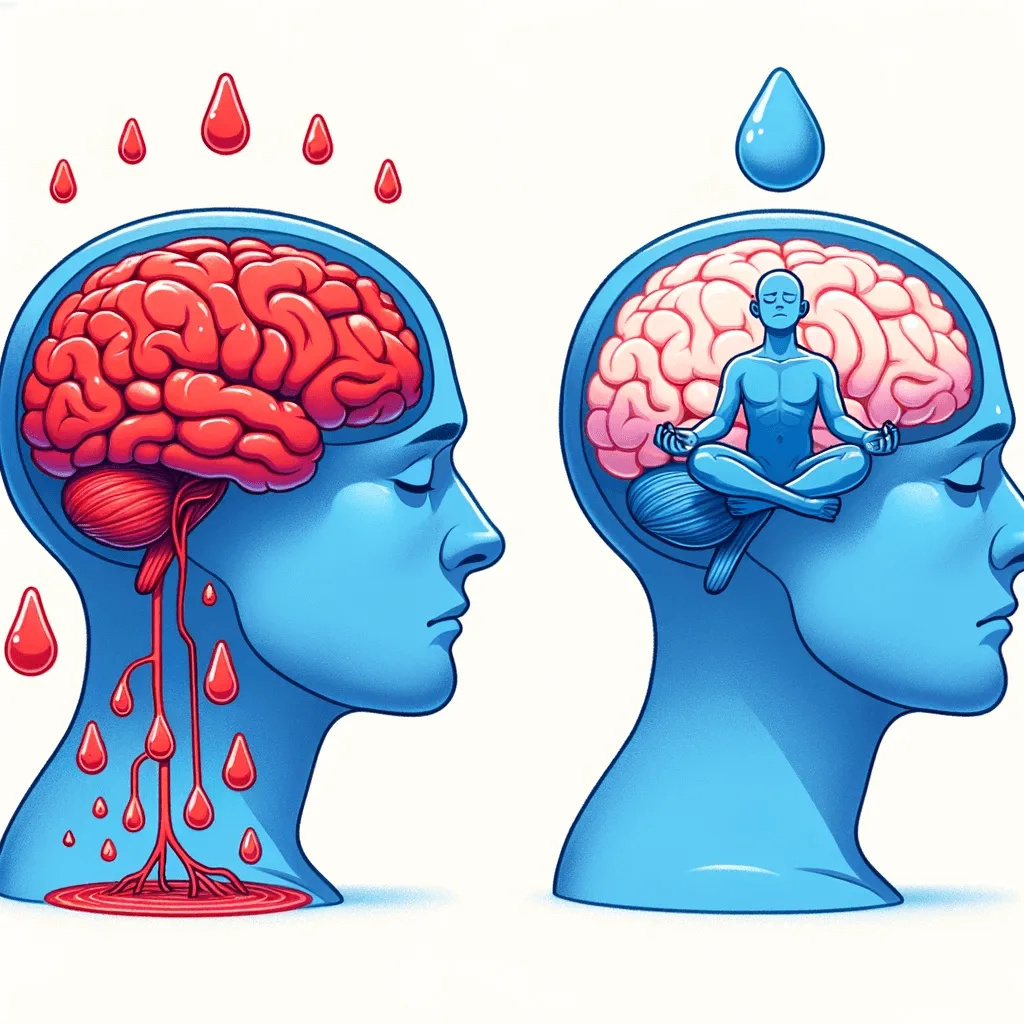
Meditation's Role In Alleviating Anxiety
In today's fast-paced world, anxiety has become a common companion for many. Whether it's the pressure of deadlines, personal challenges, or societal expectations, the weight of anxiety can be overwhelming. As people seek natural and effective ways to manage this condition, meditation emerges as a potential beacon of hope.
article by Hina Kurosawa
Anxiety: A Glimpse Into The Mind's Response
Anxiety is not just an emotional state; it's a complex interplay of brain activities. When faced with perceived threats, the brain's amygdala gets activated, releasing stress hormones and putting the body into a "fight or flight" mode. While this response is evolutionary and protective, chronic activation can lead to persistent anxiety, impacting overall well-being.
Meditation: The Ancient Practice With Modern Implications
Meditation, with its roots in ancient traditions, is a practice of focused attention and awareness. Whether it's concentrating on the breath, a mantra, or simply observing thoughts, meditation brings the mind to the present moment, distancing it from future uncertainties that often fuel anxiety.

Neurological Insights: Meditation's Soothing Touch
Recent neuroscientific research offers insights into meditation's impact on the brain. Regular meditation can reduce the size and reactivity of the amygdala, the brain's anxiety center. Simultaneously, it enhances the functionality of the prefrontal cortex, responsible for logical thinking and emotional regulation. This shift in brain dynamics reduces the intensity and frequency of anxiety episodes.

Mindfulness: The Anchor In Turbulent Times
A specific form of meditation, known as mindfulness, has gained considerable attention for its effectiveness against anxiety. Mindfulness encourages individuals to observe their thoughts and emotions without judgment. By practicing this non-reactive observation, one can recognize anxiety triggers and respond with awareness rather than being overwhelmed.
Clinical Evidence: Real-world Impact
Several clinical studies underscore meditation's efficacy in managing anxiety. For instance, a study published in the Journal of Clinical Psychology found that an eight-week mindfulness-based stress reduction program significantly reduced anxiety symptoms in participants. Such findings provide empirical evidence for meditation's role in anxiety alleviation.

While anxiety is a natural human response to stressors, unchecked, it can become debilitating. Meditation, backed by both ancient wisdom and modern science, offers a holistic approach to managing and reducing anxiety. As the world becomes increasingly complex, finding moments of stillness through meditation can be the key to mental and emotional resilience.
Published: 11/1/2023
Modified: 11/1/2023
More predictions
Come back here soon to learn more about yourself and your future





